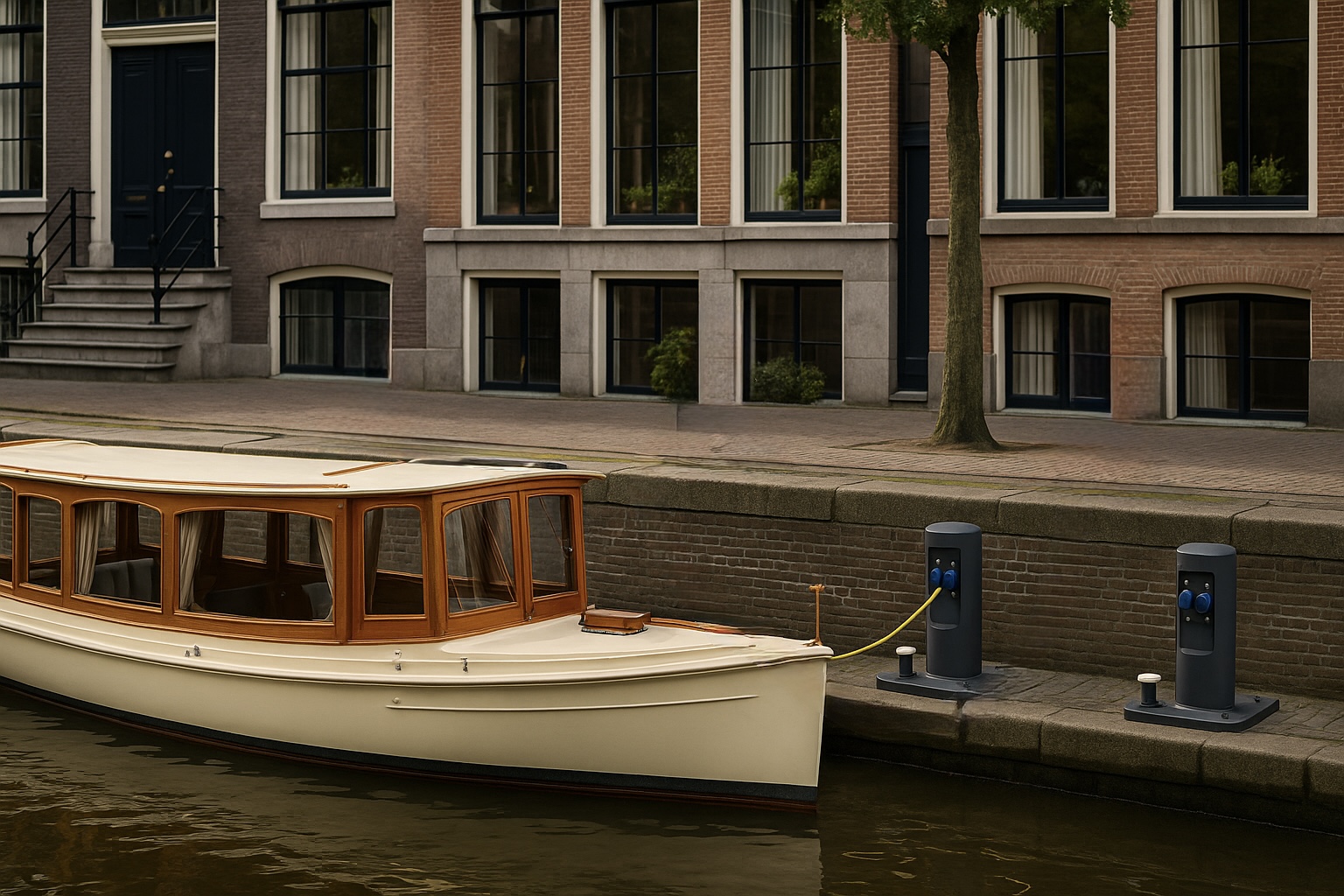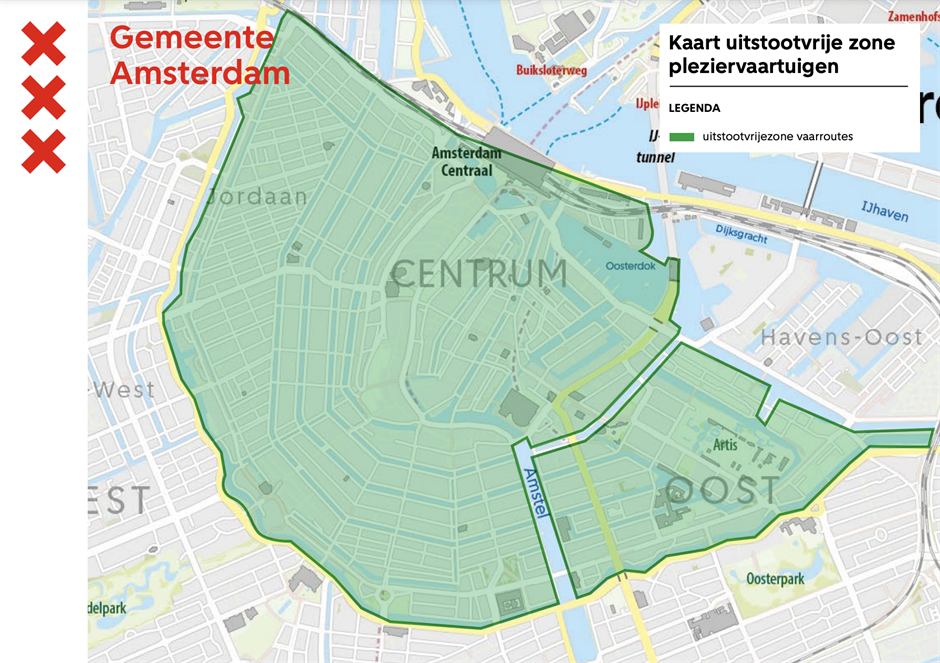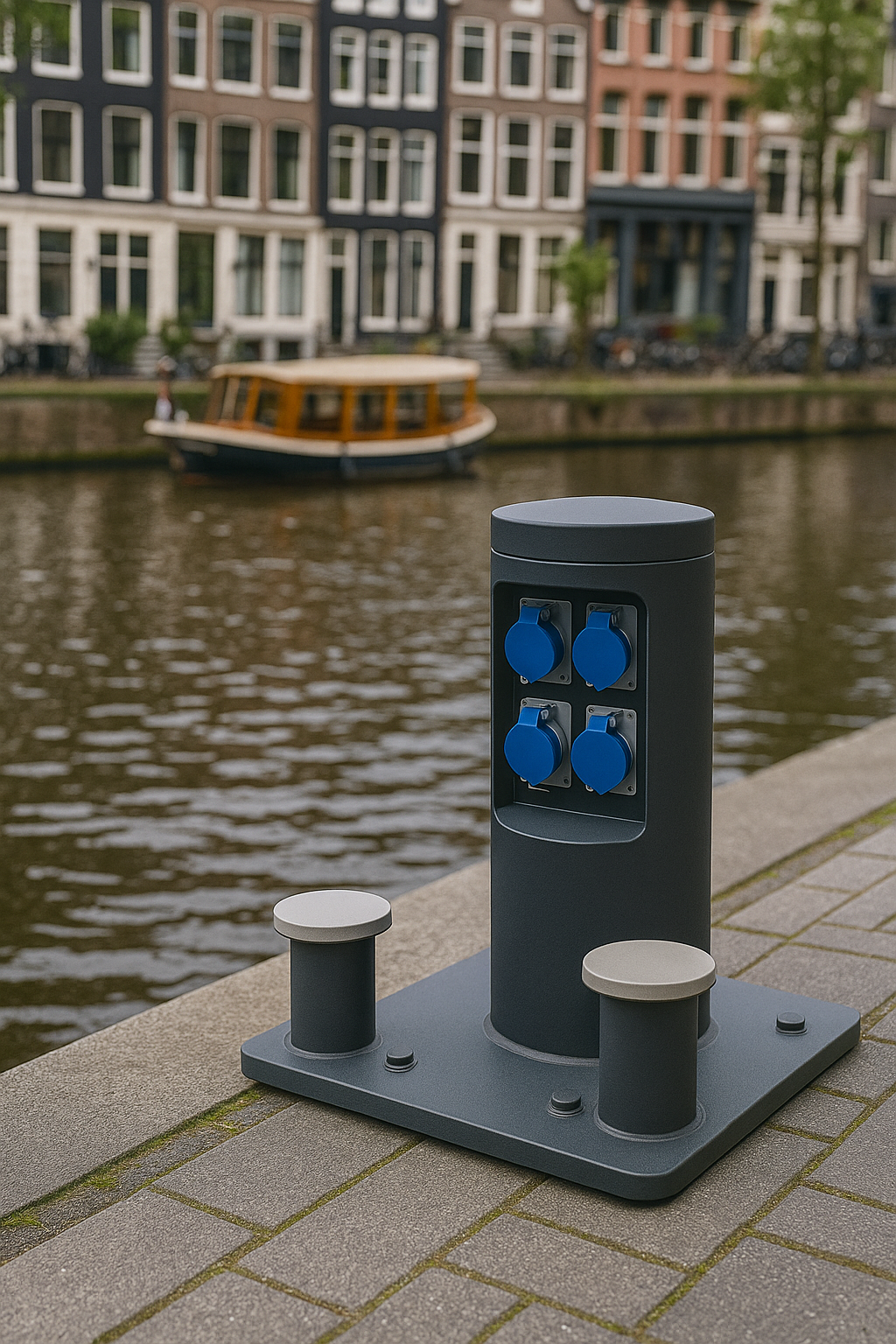Electric boating in Amsterdam


Electric boating in Amsterdam: obligation, costs and charging options
In Amsterdam, interest in electric boating is growing rapidly. The city is investing heavily in a cleaner and quieter living environment and is therefore making clear choices for the future. Many water sports enthusiasts are wondering what this means in concrete terms: from when will electric boating become compulsory, in which zones will the rules apply, what will a conversion to electric cost and where will you be able to recharge? In this article, we clearly list the main points and help you on your way to emission-free boating.
When will electric boating become mandatory in Amsterdam?
Amsterdam will introduce an emission-free zone for pleasure boats in the city centre from 1 April 2025. This means that boats running on combustion engines will then no longer be welcome within the designated area. Only boats that are fully electric, use hydrogen or run on muscle power will then be allowed to enter the city centre. Most of the city centre, including the waters within the Singelgracht, is expected to fall within this zone.
For owners who still have an older vignette, there is a limited transition period. However, that too will expire soon. Those who want to continue sailing in the centre of Amsterdam would be wise to take timely action. Moreover, around 2030, the emission-free obligation will extend to the entire Amsterdam metropolitan area. This will make electric boating the standard for all types of vessels, from small sloops and sailing yachts to larger motorboats and tour boats.
For all boats, a valid ticket mandatory, both inside and outside the emission-free zone. Whether your boat can still operate in the zone depends on the type of vignette and when you bought it.
- BCR vignette: access until 1 January 2030.
- Transit vignette: valid until 1 January 2028 at the latest.
- vignette from 2023: access until 1 January 2026
- 2024 vignette: access until 1 January 2027
- vignette from 2025: access until 1 January 2028
- Sailing Heritage (FVEN register): access until 1 January 2030 with vignette and FVEN pass.
For many boat owners, this means that opting for electric boating is not only sustainable and comfortable, but also necessary to maintain access to Amsterdam's waters in the future.
What does converting your boat to electric cost?
The cost of a conversion varies greatly depending on the type of boat, the desired range and the configuration of engine and battery. A smaller sloop of six to eight metres can in many cases be converted for sums starting at around ten to eighteen thousand euros. Larger sloops of eight to ten metres often fall into the fifteen to twenty-five thousand euro category.
Sailing yachts between six and 12 metres usually have a wider range, often between 12 and 30 thousand euros, depending on the space available and the desired motoring time. For motor boats of ten to twelve metres, the investment is higher; amounts between twenty-five and forty-five thousand euros are common. Larger vessels, such as canal boats, require heavier drivelines and larger battery packs. For these, costs often start at around forty thousand euros and can rise well above one hundred thousand euros.
The final price is mainly determined by the size of the battery pack, the engine needed, the existing condition of the vessel and any work on the technology on board. Customisation plays a major role here. Consider adjusting the propeller shaft, integrating a new 48V system or replacing a lead-acid household bank with lithium. Although an electric conversion is an investment, you benefit from much lower running costs, silence on board and a future-proof installation.
Those who want to know what is possible for their boat can have a technical assessment carried out. An inspection gives quick insight into costs, parts needed and the most suitable configuration.
Rather convert it yourself? Take a look at Boatbuilding.co.uk for the options.

Where can you charge electrically in Amsterdam?
Amsterdam is working hard to expand its charging infrastructure for electric boating. Currently, charging points are available in marinas and at several locations along the water, and this number is growing rapidly. In the coming years, hundreds of new charging points will be installed, ranging from standard shore power to special charging columns for maritime use.
See the municipality's website for an up-to-date overview.
Many marinas already have reliable shore power facilities. For many boat owners with removable batteries, it is even possible to charge at home with a suitable charger on a regular socket. This is especially true for smaller sloops and sailboats sailing with a relatively compact battery pack.
Larger systems require heavier charging points. These are increasingly becoming available at ports responding to the demand for electric boating. New charging facilities are also being developed at strategic locations along canals and shipping routes. As a result, you can increasingly count on a stable network of charging points in the city.
Those wishing to go electric would do well to check what options are available at their own port or berth. Many ports are currently expanding their facilities, often in cooperation with marine installers. Electric charging is expected to become as natural as charging an electric car.

Ready to switch to electric boating?
Electric boating is fast becoming the new norm in Amsterdam. The combination of regulations, better technology, lower maintenance costs and more charging options makes the switch increasingly attractive. For those who want to keep an existing boat, conversion offers a sustainable and future-proof solution. A first step is always good technical advice and a clear quotation, so you know exactly what to expect.
Electric boating means quiet trips through the city, no emissions, less maintenance and the certainty of continued access to Amsterdam's waters. Those who start orientating early will benefit from the best side of electric boating.
